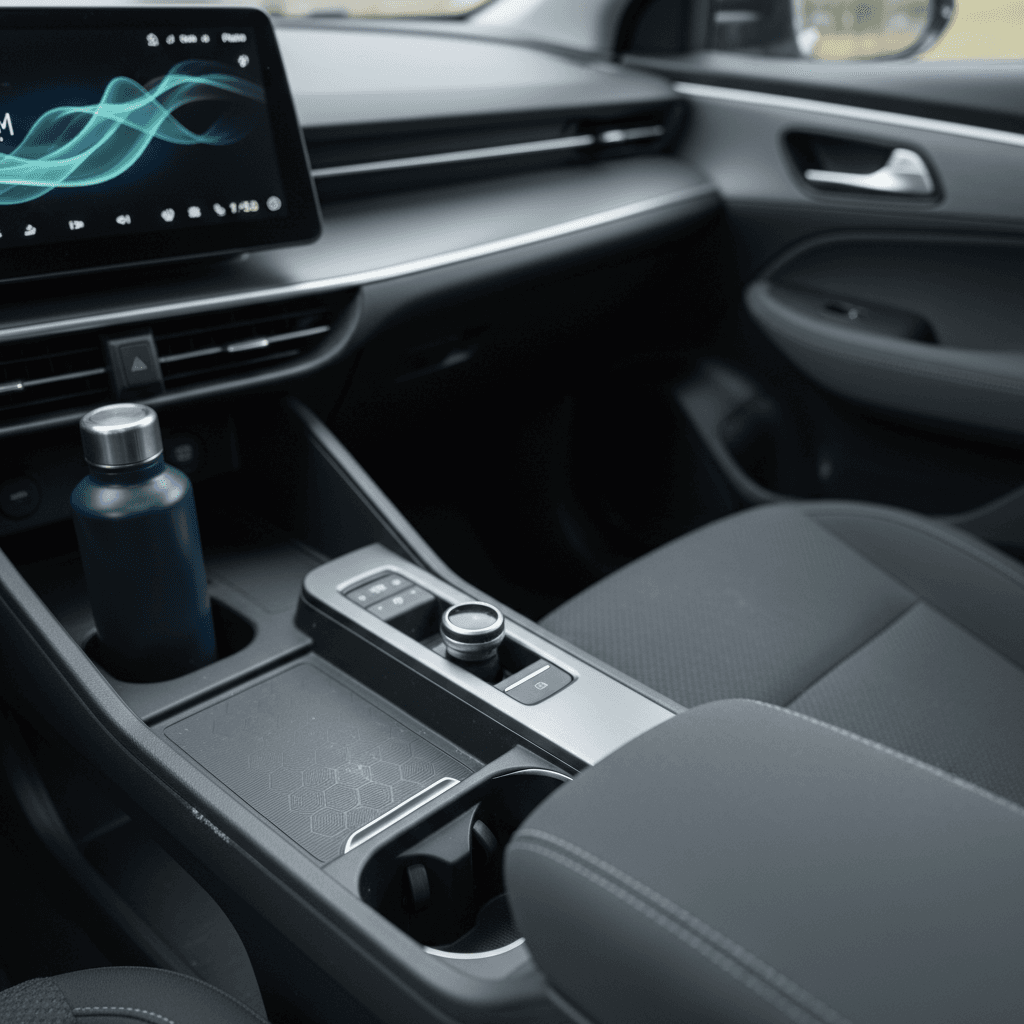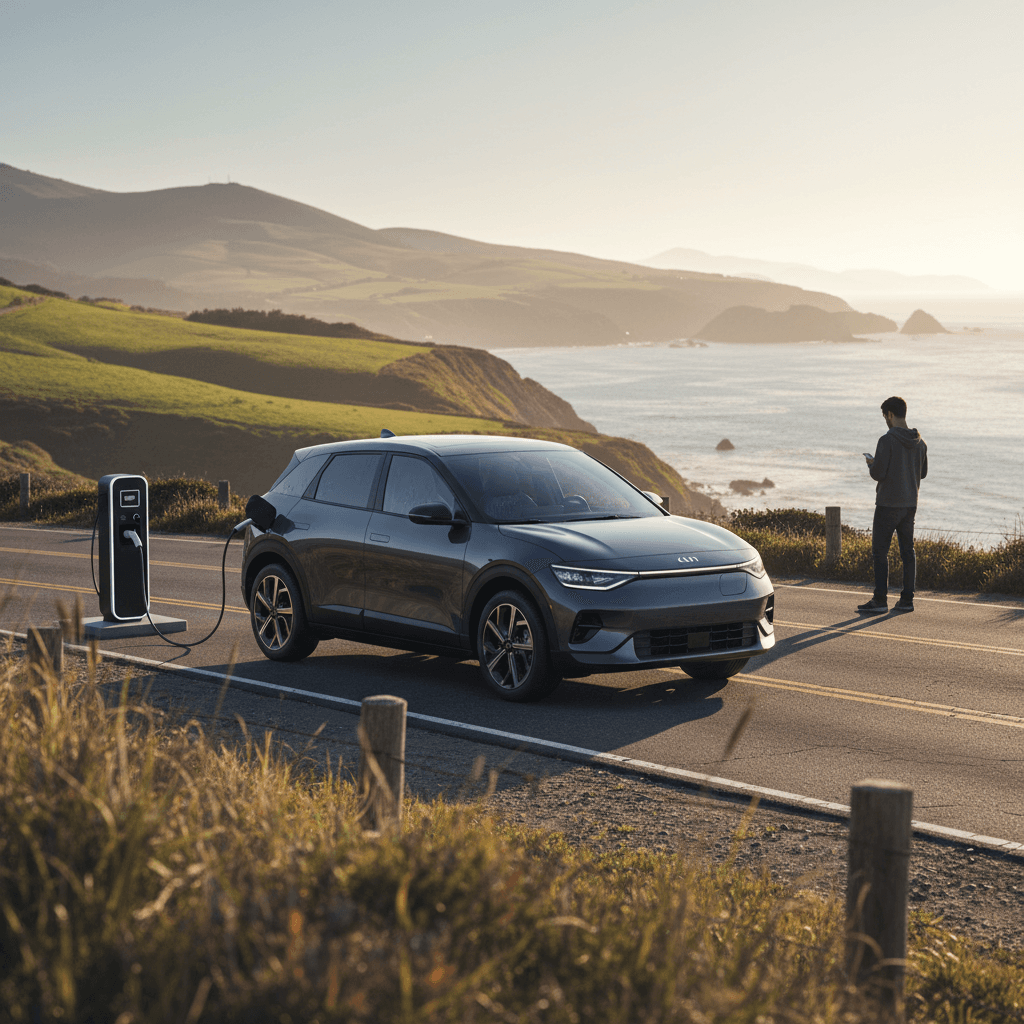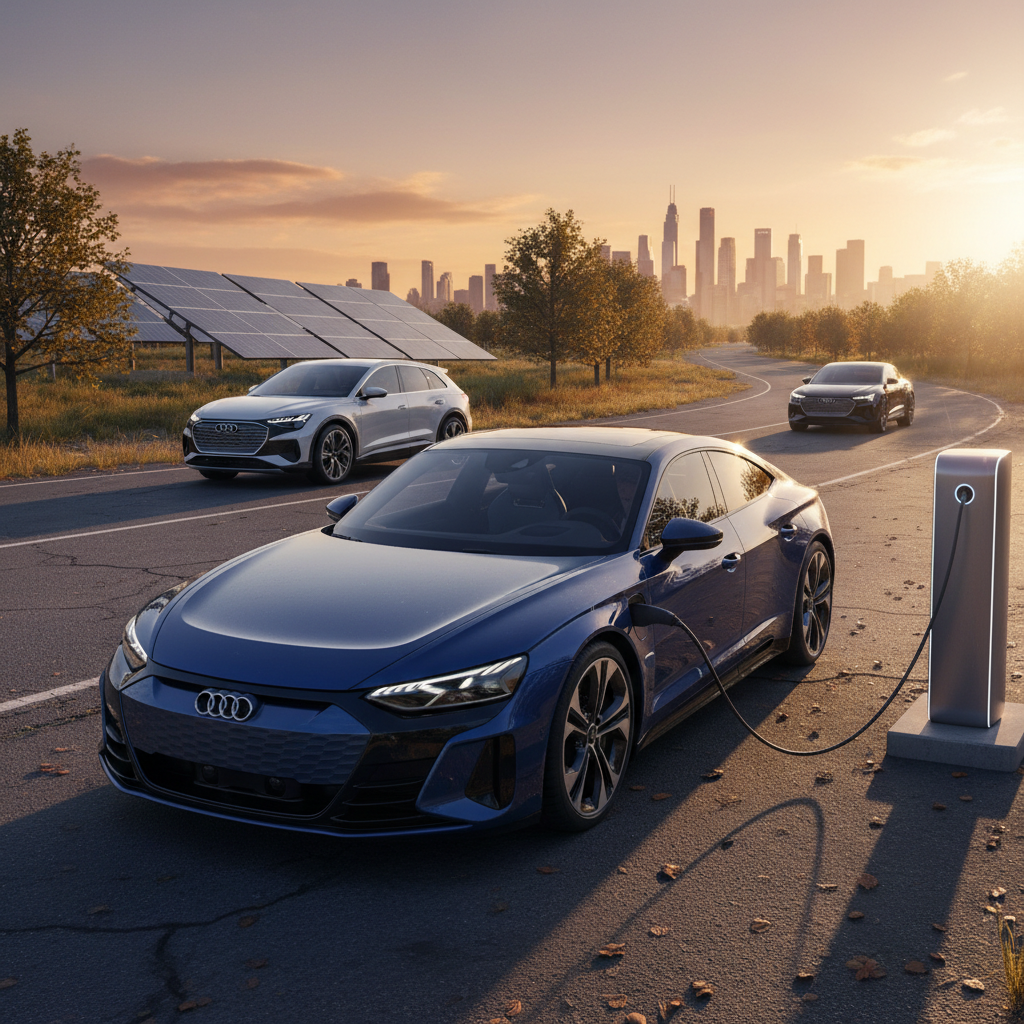When people search for the best budget cars in 2025, they’re usually not just chasing the lowest sticker price. You’re trying to survive high interest rates, unpredictable gas prices, and rapidly changing EV tech without getting stuck with a money pit. This guide cuts through the noise and focuses on cars, gas and electric, that actually make financial sense over the next few years.
What we mean by “best budget cars”

Why “budget cars” in 2025 are different
The budget-car landscape in 2025
A decade ago, the best budget cars were bare-bones econoboxes. In 2025, even the cheapest models come with standard safety tech like automatic emergency braking, smartphone integration, and decent infotainment screens. At the same time, the line between “cheap” and “good” has blurred, some of the most affordable cars are also the most livable daily drivers.
Don’t chase the lowest monthly payment
How much should you spend on a budget car?
Goal: Keep car costs under control
A common rule of thumb is to keep your all-in car costs, payment, insurance, fuel, maintenance, below 15–20% of your take-home pay. For many U.S. households in 2025, that means aiming for a car priced between $15,000 and $25,000 used, or $18,000 to $27,000 new, depending on your income and loan terms.
New vs. used on a tight budget
- New budget car: Lower maintenance, full warranty, but higher depreciation and car payment.
- Used budget car: Lower upfront cost, but you must choose carefully to avoid repair surprises, especially with EVs.
If your credit is solid, a slightly more expensive but much more efficient or reliable car can be the smarter buy over 5–7 years.
Where Recharged fits in
Best budget gas cars in 2025
Gas cars still dominate the budget end of the market, largely because their purchase prices are lower and the tech is familiar. If you want the cheapest possible new car with minimal complexity, these models repeatedly show up on independent “best budget cars” lists.
Standout budget-friendly gas cars for 2025
Focused on value, safety, and low running costs
Nissan Versa
Why it’s a budget star: Often the least expensive new car in America, with starting prices around the high teens. Despite the cost-cutting, it still offers:
- Excellent fuel economy (up to around 40 mpg highway)
- Standard safety features many rivals charge extra for
- A surprisingly comfortable ride for commuting
Downside: Base trims can feel underpowered and basic, but they’re honest transportation.
Hyundai Elantra
Why it makes sense: The Elantra costs a bit more than a Versa but gives you:
- More interior space and refinement
- Strong warranty coverage (often 5-year/60,000-mile basic and longer powertrain)
- Available hybrid trims that can top 50 mpg
If you plan to pile on highway miles, an Elantra, or especially the hybrid, can be cheaper long-term than a slightly cheaper car with worse mpg.
Toyota Corolla
Why it’s a safe bet: The Corolla is rarely the very cheapest, but it’s a benchmark for reliability and resale value.
- Excellent fuel economy, especially in hybrid form
- High safety ratings and standard driver aids
- Slow depreciation vs. many competitors
On a tight budget, a lightly used Corolla can be a smarter move than a brand-new no-name sedan.
New or nearly new fleet returns
Best budget electric cars in 2025
If your driving is mostly local and you can charge at home or work, a budget EV can slash your running costs versus gas. Upfront prices are still higher, but electricity is usually cheaper per mile and maintenance is lower. The key is to avoid overbuying range you’ll never use.

Representative budget-friendly EVs in 2025 (new)
Approximate starting MSRPs and ranges for entry-level EVs that sit near the budget end of the market. Actual pricing and availability vary by region and incentives.
| Model | Type | Approx. Starting Price | Approx. Range | Best For |
|---|---|---|---|---|
| Nissan Leaf (redesigned) | Compact hatchback | Just under $30,000 | ~300 miles | Budget-focused buyers who want a simple, efficient EV with decent range. |
| Hyundai Kona Electric | Small SUV | Low–mid $30,000s | ~200–260 miles | Drivers who want crossover practicality with reasonable pricing. |
| Chevrolet Equinox EV | Compact SUV | Mid $30,000s | ~300+ miles | Families needing more space and range but still value-driven pricing. |
| Tesla Model Y Standard | Compact SUV | Around $40,000 | ~260 miles | Shoppers who want access to Tesla’s ecosystem at the lowest entry price. |
Check local incentives and dealer pricing; EV deals change quickly.
EV incentives are in flux
New budget EVs are improving, but for many value-focused buyers, used EVs are where the math really starts to shine. That’s where Recharged focuses: helping you buy a used electric car with clear, verified battery health, so you’re not betting your savings on a mystery pack.
Best budget used EVs: where the real value is
EVs depreciate differently than gas cars. Early models often dropped sharply in value as new tech arrived and incentives changed, which means a lot of very usable EVs now trade well under their original MSRP. The catch, and it’s a big one, is battery health. A cheap EV with a weak pack is no bargain.
Used EVs that often deliver great value
Exact pricing varies by condition, mileage, and incentives
Chevrolet Bolt (previous gen)
Why it’s compelling: The previous-generation Bolt offered solid range in a compact package, often over 200 miles when new. As newer models and other EVs arrive, used prices have become attractive.
- Great as a commuter or second car
- Plenty of tech for the price
- DC fast charging for road trips (with planning)
Key check: Confirm any battery recall work is complete and review a detailed battery health report, not just the dash estimate.
Nissan Leaf (earlier generations)
Why it can be a budget steal: Older Leafs have taken heavy depreciation, which means you can sometimes find them for compact-used-car money.
- Ideal for short commutes or city driving
- Simple, proven drivetrain
- Very low maintenance costs
Key check: Leaf batteries don’t always age as gracefully in hot climates. A verified health report is essential before you commit.
Hyundai Kona Electric (used)
Why to consider it: The Kona Electric combines strong efficiency with a crossover body style. Used examples can offer:
- Over 200 miles of real-world range
- Good standard safety tech
- Often still under warranty
Key check: Verify DC fast charging behavior and look for any history of repeated rapid charging in extreme heat.
Tesla Model 3 (higher-mileage)
Why it’s worth a look: Early Model 3s are now aging into budget territory, especially with higher mileage.
- Access to Tesla’s Supercharger network
- Strong software support and updates
- Good efficiency even by modern standards
Key check: Make sure you understand which connector standard it uses and what adapters you’ll need as the charging landscape shifts.
Never buy a used EV blind

Budget small SUVs and crossovers
The market has shifted hard toward crossovers, and automakers responded with surprisingly affordable small SUVs that often cost only a bit more than compact sedans. For many U.S. buyers, the best budget car isn’t a car at all, it’s a small, efficient crossover that can handle bad weather and family duty.
Notable budget-friendly small SUVs (gas)
For drivers who want extra space and ride height without luxury pricing
Chevrolet Trax
Why it stands out: The new Trax has gone from basic to genuinely stylish while staying affordable.
- Compact footprint but roomy interior
- Modern infotainment with large screens
- Competitive pricing versus small sedans
Great choice if you want SUV looks and practicality on a car budget.
Hyundai Venue
Why it’s popular with budget buyers: The Venue is one of the most affordable crossovers on sale.
- Easy to park and maneuver in cities
- Good fuel economy
- Long warranty coverage
It’s not fast, but it nails the basics for first-time buyers and urban drivers.
Kia Soul
Why it’s a clever compromise: Technically a hatchback, the Soul offers crossover-like space and a tall seating position.
- Distinctive styling and roomy cabin
- Strong value for money
- Lower running costs than many larger SUVs
If you want practicality and personality on a budget, the Soul is worth a look.
How to judge a budget car beyond the price tag
7 things to check before calling it a “good deal”
1. Total cost of ownership, not just price
Estimate fuel or electricity costs, insurance, maintenance, and expected depreciation over at least five years. A slightly more expensive car that’s cheap to run can be the true budget choice.
2. Safety ratings and active safety tech
Look for strong crash-test scores and standard features like automatic emergency braking, lane-keeping assistance, and blind-spot monitoring. Safety tech is now common even on budget trims.
3. Real-world fuel economy or efficiency
EPA ratings are a starting point, but check owner reviews for real-world numbers, especially for highway-heavy or cold-weather driving, where both gas cars and EVs can consume more.
4. Reliability history
Research common issues for the exact model and year you’re considering. For used EVs, prioritize cars with verifiable battery health rather than just low mileage.
5. Resale value
Cars with strong resale value protect you if your situation changes. Nameplates like Toyota Corolla tend to retain value better than ultra-cheap, lesser-known models.
6. Fit for your actual driving pattern
A 300-mile EV is overkill if you drive 25 miles a day and road-trip once a year. Likewise, a tiny hatchback might frustrate you if you regularly haul gear or passengers.
7. Financing terms
Low monthly payments can hide long, expensive loans. Compare APRs, loan length, and total cost. Don’t be afraid to walk away if the numbers don’t add up.
Use data, not vibes
Financing and buying tips for budget buyers
Smart financing moves
- Shop your rate before you shop the car: Get pre-approval from a bank or credit union so you know what APR you qualify for.
- Aim for the shortest term you can afford: 36–60 months generally keeps interest costs in check. Extremely long loans can leave you upside-down.
- Watch fees and add-ons: Extended warranties, paint protection, and accessories add up fast. Prioritize real value over “peace of mind” pitches.
Leaning toward a used EV?
If you decide a used EV is your best budget play, leverage specialists rather than treating it like any other used car.
- Use marketplaces like Recharged that focus on EVs specifically.
- Review the Recharged Score Report for battery health, pricing, and vehicle history in one place.
- Take advantage of EV-specialist support to understand charging, software, and long-term ownership costs.
Pre-qualify without hurting your credit
FAQ: Best budget cars in 2025
Frequently asked questions about budget cars
Bottom line: choose the budget car that matches your life
There’s no single “best budget car” for everyone in 2025. For some, it’s the absolute cheapest new sedan they can finance comfortably. For others, it’s a lightly used compact crossover that can carry kids and gear, or a used EV that trades long road trips for incredibly low daily running costs. The key is to look past the sticker price and focus on how the car fits your real life and real budget over the next five to seven years.
If you’re curious whether a used EV might actually be your smartest budget move, that’s exactly what Recharged was built for. With verified battery-health data, fair market pricing, financing options, and EV-specialist support from start to finish, you can treat your next car not as the cheapest option today, but as the lowest-cost decision over time.



